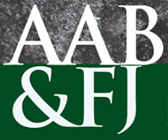Abstract
This study investigates the implications of the gap between International Financial Reporting Standards (IFRS) and New Zealand International Financial Reporting Standards (NZIFRS) on financial reporting transparency, accountability and corporate fraud. Content analysis of IFRS and NZIFRS was carried out to determine if there are differences between IFRS and NZIFRS. Four IFRS, namely IAS 12, IFRS 13, IFRS 15, IAS 17 and IFRS 16 were analysed on the basis of adoption concessions and Reduced Disclosure Regime (RDR) for tier 1 and 2 entities. The findings from these standards led to a review of the associated IFRS to further understand the implications of the standards on financial reporting transparency and decline in incidences of corporate fraud. We found that the difference between IFRS and NZIFRS lies in the financial reporting framework for tier 2 entities. However, we did not find a difference between IFRS and NZIFRS for entities in tier 1 but we identified a decline in incidences of corporate fraud after IFRS was adopted. We further identified the presence of information asymmetry for tier 2 which is capable of retaining Generally Accepted Accounting Principles (GAAPs). These differences may increase the incidence of corporate fraud among the entities in tier 2 of External Reporting Framework. This is due to an excessive concession from IFRS implementation in New Zealand.
Keywords: Corporate Fraud, IFRS, New Zealand, IAS 12, IFRS 13, IFRS 15, IAS 17, IFRS 16
How to Cite:
Edeigba, J. & Amenkhienan, F., (2017) “The Influence of IFRS Adoption on Corporate Transparency and Accountability: Evidence from New Zealand”, Australasian Accounting, Business and Finance Journal 11(3), 3-19. doi: https://doi.org/10.14453/aabfj.v11i3.2
Downloads:
Download PDF
874 Views
8013 Downloads

